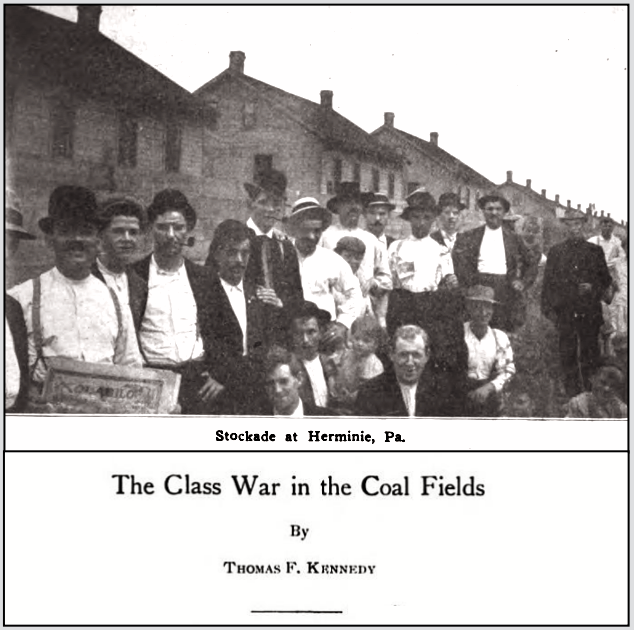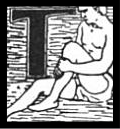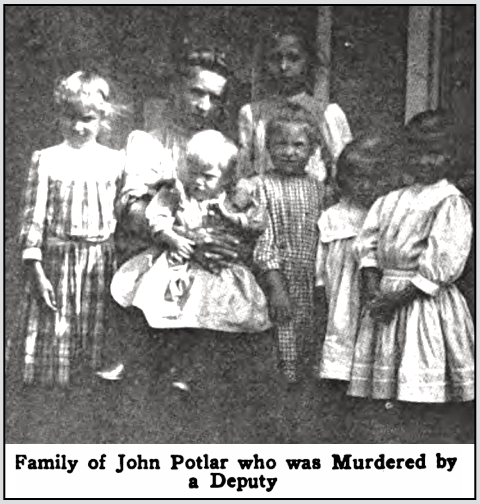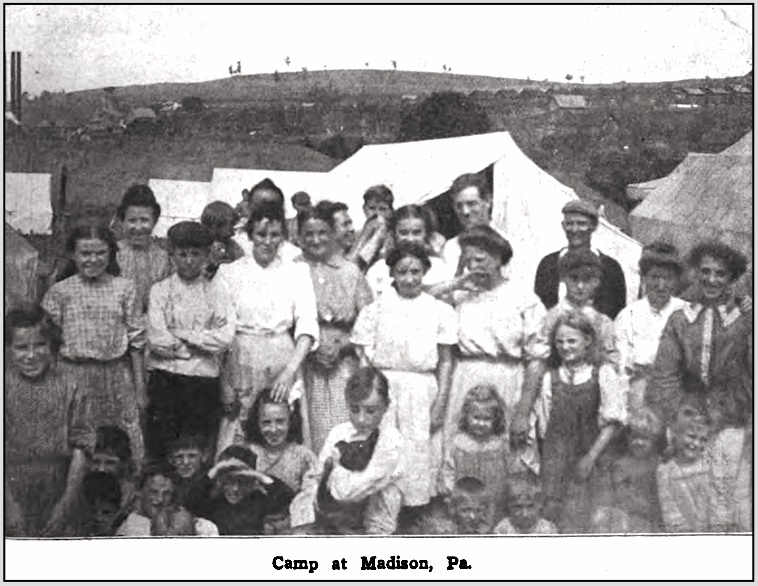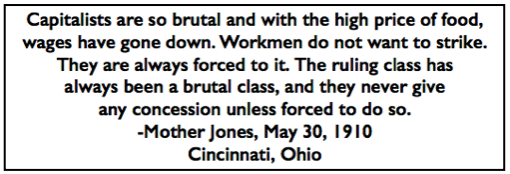 ———-
———-
Hellraisers Journal – Thursday September 22, 1910
Westmoreland County, Pennsylvania – Class War Continues in Irwin Coal Field
From the International Socialist Review of September 1910:
[Part I of II.]
HE Strike” are the words most appropriate to designate an article dealing with the situation in the Irwin coal field, because it is the strike of the year if not of the decade. There was nothing out of the ordinary about any of the other strikes that have occurred so far this year. The biggest strike in point of numbers and duration is that of the Illinois miners. It has been since its inception strictly orthodox, including the conflict of authority between the district organizations and the National Board and President Lewis. In Illinois both sides were, and had for years, been organized. All of the arts of diplomacy and bargaining were exhausted before the strike was declared. It is warm, pulsing stomachs against steel safes full of gold.
The Irwin strike is rashly unorthodox. Excepting the formal declaration it has all of the characteristics of a violent revolution.
More persons have been killed, injured and taken prisoners than in many of the bloody uprisings in the Balkans or South America which are so regularly exploited on the front pages of the “Joinals.”
Fifteen persons, two of them women, have met violent bloody deaths. Some of these were killed in open conflict, others in skirmishes, but most of them were brutal, cold-blooded murder of men who dared to tell a prospective scab that there was a strike on.
Nobody knows how many strike breakers have been killed at work owing to inexperience and their bodies burned or secretly buried at night. When a big mine is running with experienced men there is hardly a day passes without some being killed or badly injured, but if there are any accidents now nobody ever hears about them. Of course they are killing men and like wise of course they are burying them secretly, probably with the connivance of the county authorities.
Some of those arrested were deputy sheriffs. One is in jail for the most brutal, cold-blooded murder in the criminal annals of Pennsylvania. Three others are out on bond charged with murder. One operator is out on bond for having kicked and killed a pregnant woman.
Some of the strikes that received so much notoriety from both the capitalist and socialist press were but child’s play alongside of this. The waist maker’s strike in New York was a case in point. Proximity of course had much to do with it. The capitalist papers could safely excoriate the little capitalists that are engaged in the waist industry. They did not own the papers. They did not furnish any of the advertising and gave the “Jionals” a chance to prove to the workers how they love them.
For shocking sensations, intensely dramatic incidents and solid elemental tragedy this Irwin strike surpasses anything since Homestead.
There were not fifteen killed in the skirmish of the waist makers, no three hundred injured, no 1100 prisoners taken as has been the case in Irwin. There were no fourteen foot stockades to keep strike breakers in and strikers out. There was no regiment of “Black Hundreds” collected from the slums and barrel houses of Pittsburg and other cities, armed to the teeth and sworn in as deputy sheriffs. There were no evictions from company houses and an enforced life in over crowded tents like nomads of the desert.
The whole labor press of America have neglected not only their duty but their opportunities in this Irwin strike. While they are discussing craft autonomy and shouting with joy about Bucks, one of the greatest battles of the class war is raging and they don’t even seem to know it, excepting in Pittsburg.
The Greensburg Argus, a Democrat organ published in Greensburg has done good service in exposing the insolent, drunken thugs that parade around armed to the teeth looking for trouble and if they can’t find it—making it. The Washington Labor Journal edited by William Black, a printer and published or edited in Washington, Pa. has published every word it could secure about the strike.
When the deputies commit an especially vicious act of villainy in true bandit style, they always cut the telephone wires so that the first report that reaches the rest of the world is their own cooked up account.
Of course the operators being the most powerful and wealthiest capitalists in Pennsylvania can easily muzzle the capitalist press. They have muzzled it and only very small harmless items appear in their inside pages except in the “Leader.”
They are offering $6.00 an oven for men to pull coke. A man can pull three ovens a day so that they are offering $18.00 a day for strike breakers. They are offering all kinds of minor inducements such as free fare, free furniture moving and free rent. The regular price for pulling coke in the Irwin field is about 75 or 85 cents an oven.
The Union War Chest.
The Syndicalists can scoff at the war chest, but had it not been for the war chest of the Miners’ Union, the strike would be but a memory. As soon as the slaves revolted they were ordered out of the company houses. Had the strikers been obliged to get out of the district there would have been no difficulty about getting and keeping strike breakers. But in anticipation of the evictions the officials of the Miners Union ordered 400 tents used in Alabama and bought 100 more, making 500 tents now in use. In many cases where a man rents from a private individual or owns his own home as some of the miners do around the larger towns, the men and boys occupy the tents while the women and smaller children sleep in the houses.
The camps are a constant reminder that there is a strike. The stupidest strike breaker is bound to discover the meaning of the camps before he is very long on the job. So long as there is one single striker’s tent in the Irwin field the strike is not over.
At first living in the camps was a picnic and was the first holiday some of the miners and their families have had in their lives. But now summer is on the decline. Already the nights are chilly and crisp October is only a month ahead so the strikers are chaffing and growing impatient. The growing frequency of clashes with guards and scabs is evidence of their growing desperation.
The scab hunters tapped a rich vein about the middle of August. In 1903 the Meyersdale region was swamped with new importations to break a long drawn out and bitterly contested strike. The Union was annihilated and the strikers driven out and pursued with a relentless black list. The scabs were never white washed and never forgiven but were treated by the survivors of 1903 as traitors and enemies. For several years the operators in the low coal of central Pennsylvania have been so hard pressed by competition with the cheaply mined coal of West Virginia that the mines have been idle or partly idle. For several years work has been slack and times hard around Meyersdale so that it was not difficult for the scab hunters to prevail on those that had scabbed in 1903 to scab again.
They know what they are doing too. They are not being deceived as are so many. They are going to stay. They are going armed and to a comrade who spoke to a batch of them going to Latrobe, they said they would shoot the first man that dared to attack or molest them even so much as by telling them there was a strike. These are the first experienced miners that have been brought in to take the places of the strikers. They are foreigners and of the same nationality that is the backbone of the strike in the Irwin field. These fellows should be able to get at least $10.00 a day and I have no doubt they will.
[Emphasis added.]
~~~~~~~~~~~~~~~~~~~~~~
SOURCES & IMAGES
Quote Mother Jones, Brutal Ruling Class, Cnc Pst p7, May 31, 1910
https://www.genealogybank.com/
The International Socialist Review, Volume 11
(Chicago, Illinois)
-July 1910 to June 1911
Charles H. Kerr & Company, 1911
https://www.marxists.org/history/usa/pubs/isr/
https://books.google.com/books?id=8-05AQAAMAAJ
ISR – Sept 1910
https://www.marxists.org/history/usa/pubs/isr/v11n03-sep-1910-ISR-gog-Corn-OCR.pdf
https://play.google.com/books/reader?id=8-05AQAAMAAJ&printsec=frontcover&pg=GBS.PA127-IA4
page 141-“Class War in the Coal Fields”
-by Thomas F. Kennedy
https://play.google.com/books/reader?id=8-05AQAAMAAJ&printsec=frontcover&pg=GBS.PA141
See also:
Hellraisers Journal – August 25-27, 1910
From the International Socialist Review of August 1910:
“The Irwin Coal Strike” by Thomas F. Kennedy
Part I – Part II – Part III
re William Clark Black & Union Labor Journal of Washington Pa, see:
20th century history of the city of Washington and Washington County, Pennsylvania and representative citizens, 1910
-re William Clark Black with Photo
https://archive.org/details/20thcenturyhisto02mcfa/page/704/mode/2up
~~~~~~~~~~~~~~~~~~~~~~~~~~~~~~~~~~~~~~~~~~~~~
There Is Power in a Union – John McCutcheon
Lyrics by Joe Hill

